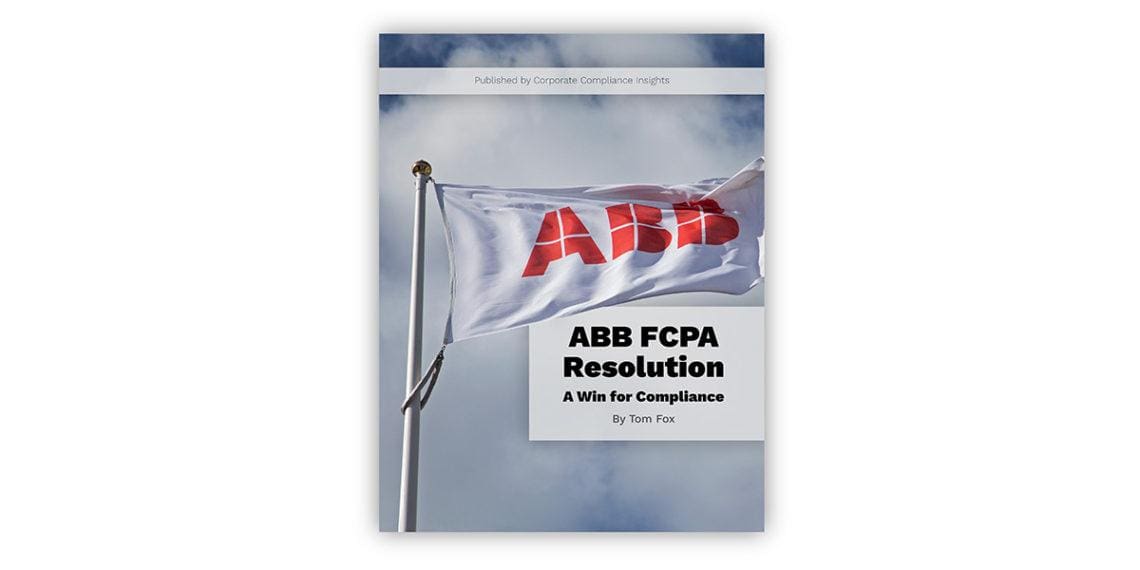The DOJ’s Fraud Section had a banner year in 2022, posting its highest number of convictions in a single year — 56 — and continuing the agency’s stated focus on individual accountability. Sandra Moser, Justin D. Weitz and Erica A. Jaffe from Morgan Lewis unpack the agency’s annual report.
In recent years, the number of corporate resolutions by the DOJ’s Fraud Section has declined annually. According to the year in review report, the Fraud Section completed seven corporate resolutions in 2022. By contrast, there were eight corporate resolutions in 2021, 13 in 2020 and 15 in 2019. 2022 also saw the lowest total global settlement amounts collected during that same time period: $2.14 billion.
More corporate resolutions emanated from the FCPA unit than from the market integrity and major frauds (MIMF) unit. There were only two MIMF resolutions in 2022 — Glencore and Fiat Chrysler — in contrast with six MIMF resolutions in 2021. However, both MIMF resolutions were significant and demonstrated the MIMF unit’s flexibility in addressing both market manipulation and consumer fraud.
Indeed, speaking at a recent conference, Fraud Section Chief Glenn Leon remarked that his team of prosecutors are looking past just numbers to ask whether “we are doing the right cases, are we bringing the right results, are we having the right impact?” and added, “by that measure, I would say yes.”
By contrast, the number of individuals convicted and trial convictions continued to rise. In 2022, the Fraud Section recorded its highest number of trials and trial convictions ever — 51 trials and 56 trial convictions. Trial convictions in 2022 nearly doubled the 2021 figures — 30 trial convictions in 2021, as compared with 56 trial convictions in 2022. The 2022 figures are a meaningful increase even when compared to pre-pandemic 2019 levels, when the Fraud Section secured 37 trial convictions. Also noteworthy is the section’s success rate of securing convictions at trial — 78% — with 72 individuals tried and 56 convicted at trial.
The Fraud Section also secured more individual convictions than in years past. In 2022, 342 individuals were convicted vs. 329 individuals convicted in 2021. This is a significant jump from pre-pandemic levels in 2019, when 256 individuals were convicted. In other words, convictions in 2022 exceeded 2019 levels by 34%. These numbers are noteworthy and illustrate a continued focus on individual accountability.
As ever, the driver of individual convictions is, by far, healthcare fraud (HCF) enforcement efforts. In 2022, there were roughly twice as many HCF convictions as there were MIMF convictions. The HCF unit is also a driver of the Fraud Section’s record-setting 51 trials in 2022 — the HCF Unit conducted 38 of these trials. The number of trials in 2022 was more than double the 15 trials conducted in 2021.
Individual accountability
The 2022 numbers — and the upward trend leading up to 2022 — make clear that the Fraud Section is heeding the call to focus on individual accountability. DOJ leadership has made repeated public policy pronouncements about the importance of and focus on individual accountability.
In October 2021, Deputy Attorney General Lisa Monaco announced that the DOJ was restoring prior guidance issued by former Deputy Attorney General Sally Yates in her 2015 memo, and a year later, Monaco announced significant updates to the DOJ’s corporate criminal enforcement policies intended to give effect to the tougher-on-corporate-crime approach Monaco announced in 2021.
On the subject of individual accountability, Monaco said that it is the DOJ’s “top priority” and that the DOJ is committed to “do more and move faster.” The new updates placed additional emphasis on the speed of disclosure by requiring cooperating companies to come forward more quickly with evidence of individual wrongdoing. A continued upward trend of individuals convicted is expected in 2023.
Independent corporate monitorships
Before 2022, DOJ leadership also announced a renewed focus on the use of independent corporate monitors in resolutions. During the same October 2021 announcement, Monaco highlighted that to the extent that prior guidance indicated a presumption against corporate monitors, such guidance was going to be rolled back and prosecutors would be able to impose monitors where they deem appropriate.
ABB FCPA Resolution
Find out how a three-time convicted FCPA violator, ABB, managed to avoid having a monitorship imposed.
Read moreFollowing this announcement, 2021 ended with two corporate resolutions that both imposed independent monitors: Balfour Beatty Communities and NatWest. At the time, it seemed like 2022 was destined to bring even more resolutions with monitors imposed. However, in 2022, only two corporate resolutions required monitors. In some instances, such as the FCPA resolution with ABB, a Swiss-based global technology company, the company’s cooperation and remediation specifically allowed it to avoid the imposition of a monitor. 2023 resolutions will shed more light on how the Fraud Section intends to impose monitors in the future.
After issuing no public declinations pursuant to the Corporate Enforcement Policy in 2021, the FCPA Unit entered into two CEP declinations in 2022. In both matters, the companies voluntarily self-disclosed the misconduct, fully remediated the underlying issues, and fully cooperated with the DOJ’s investigation.
Recent policy announcements indicate the DOJ clearly wants to incentivize companies to self-disclose misconduct and fully cooperate with DOJ investigations. In January 2023, Assistant Attorney General Kenneth Polite Jr. announced the first significant changes to the DOJ Criminal Division’s corporate enforcement policy (CEP) since the CEP was announced in 2017, outlining how companies — even those facing aggravating circumstances — may qualify for a declination. The requirements include voluntary self-disclosure, having had an effective compliance program at the time of the misconduct and providing extraordinary cooperation with the DOJ investigation. This presents a high bar with no bright line guidance. It remains to be seen whether future declinations will shed more light on how companies can meet these expectations.
Cooperation with foreign authorities
Increased cross-agency coordination and cooperation with foreign authorities will undoubtedly continue. Global anti-corruption laws have become more seasoned, global whistleblowers are on the rise, and countries are becoming more serious and more adept at prosecuting corruption within their own borders.
In 2022, each of the five corporate FCPA matters that resulted in a criminal resolution was coordinated with parallel resolutions by domestic and foreign authorities—both authorities that the Section has partnered with before, as well as new partners. For example, the resolution with ABB saw the FCPA Unit’s first coordinated enforcement action with South Africa, and the Fraud Section has demonstrated dexterity in pursuing corporations domiciled abroad, such as Glencore.
While much remains to be seen in 2023, expect an increase in prosecution activity in 2023 and beyond. While companies and prosecutors continue to adjust to the “new normal” following the height of the global pandemic, with travel, office and courthouse functions largely resuming, the Biden administration has repeatedly made its priorities clear by taking a tough-on-white-collar-crime approach.

Sandra Moser is a partner in Morgan Lewis’s white collar litigation and government investigations practice and former chief of the DOJ’s Fraud Section, which has exclusive jurisdiction over the FCPA and routinely handles many of the world’s most significant economic crime cases.

Justin Weitz, who spent nearly a decade in the DOJ’s Criminal Division, represents clients in a variety of litigation matters, including government investigations, internal investigations, compliance counseling and training and other white-collar matters involving major representations across all industries.
















